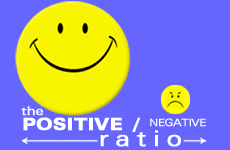 Iran’s Attack on Israel
Iran’s Attack on Israel


5 min read
Of course you love your child. But in the midst of all the daily demands and negativity, does your child really know this?
Before you can engage
in any fancy parenting strategies, you've got to lay the groundwork.
The parent-child
relationship is first and foremost a relationship.Parental "power" comes from
the good relationship a parent has with his child.
This is particularly
evident in the adolescent years when brute strength alone no longer wins a
parent any points.
The only influence a parent has over his teenager is the influence of love.
The only influence a
parent has over his teenager is the influence of love; if the child cares about
her parents, she'll try to do the right thing for them; if she doesn't care,
she'll do whatever she wants to do.
In earlier childhood
this principle is also true but less obvious.It sometimes seems to parents of
young children that their authority stems from the power of being bigger.However,
this kind of power can only control a child's body -- her mind is always free.True
parental power always stems from love.
BUT I LOVE MY
CHILDREN!
Of course you do!But
does your child know this?
Does he receive your tender
kisses when he's awake -- or only when he's sleeping?What actually happens when
he gets up in the morning?Do you offer a steady stream of compliments, praise, and
unconditional positive regard?
Or is it, "HURRY UP!
YOU'RE GOING TO BE LATE! PUT THAT DOWN BEFORE YOU BREAK IT! CLEAN UP THAT MESS
RIGHT NOW! EAT YOUR BREAKFAST ... BRUSH YOUR TEETH ... MAKE YOUR BED ... THE BUS IS
COMING ... LEAVE YOUR BROTHER ALONE ... WHERE'S YOUR HOMEWORK?"
Not that you mean to
be critical.It's just that your child needs a lot of correction in the morning.In
the afternoon.In the evening.And especially at bedtime.
SO HOW CAN I
MAKE HIM MOVE?
The answer always lies
in the quality of the relationship.
Yes, there are some
important techniques that you can use to gain cooperation, but there is not a
single technique that can work in the absence of a secure, positive
relationship.The relationship is the foundation of all discipline and guidance.So,
back to the relationship:
The more positive attention the child receives, the more cooperative he becomes.
The more positive
attention the child receives, the more cooperative he becomes.Repeat that
sentence aloud ten times:"The more positive attention ... the more cooperative...
" This sentence is the key to successful parenting.Memorize it!
BELIEVE ME,
HE GETS TOO MUCH POSITIVE ATTENTION!
I'm sorry but I can't
believe that.Research studies have ascertained that the average parent is
giving his child approximately 96 percent negative attention and 4 percent positive!
These findings are
based on the minute-by-minute analysis of video recordings of parents and
children in action at prime times during the day.
How would your minute-by-minute interactions with your kids look in the hour following dinner?
How would your
minute-by-minute interactions with your kids look in the hour following dinner,
for example?If each minute had to be assigned either a (+) for positive
interaction or a (-) for negative, what would your ratio be?
How about in the first
hour of the day?How about just before bed time?
To help you in your
self-appraisal, consider the following types of parental actions to be positive
(+) ones for your child:
Consider the following
types of actions to be negative (-) ones for your child:
IT'S ALL IN
THE RATIO
It's actually
impossible to parent without using some negative techniques.The techniques
aren't meant to be negative -- they just feel negative to the child.The parent
uses them because they are necessary at a given time.
Of course, some
negative techniques happen not because they are necessary for good parenting.
They happen because the parent is a human being who has some human weaknesses and
limitations -- like bad moods, grouchiness, a bad temper, impulsivity, and
feelings of helplessness or stress that get transformed into rage.
A bit of human error is tolerable in parenting -- it really all depends on the ratio of positive to negative.
However, a bit of
human error is tolerable in parenting --it really all depends on the ratio.How
often do negative techniques happen compared to positive ones?In a given hour,
how many positive actions does the parent make and how many negative ones?
If the parent
consistently makes predominantly positive actions, the child will perceive the
parent as loving.On the other hand, if the parent makes predominantly negative
actions, the child will usually perceive the parent as unloving, even hurtful
-- despite the fact that the parent might be filled with love for the child!
The ideal
positive-to-negative ratio is 80 to 20.That is, for every four positive actions
a parent makes towards his child, he can afford to make one negative one.
For example, three
hugs and a kiss, earns you one request ("time for homework").Or three
compliments and a cookie, gets you one threat ("stop hitting your sister or
you'll have to leave the room").No matter how many things your child does
wrong, you cannot afford to change the positive-to-negative ratio.
Sarah Chana
Radcliffe, a member of the College of Psychologists of Ontario, is a family therapist and
author of numerous books, including and
Teen Esteem
